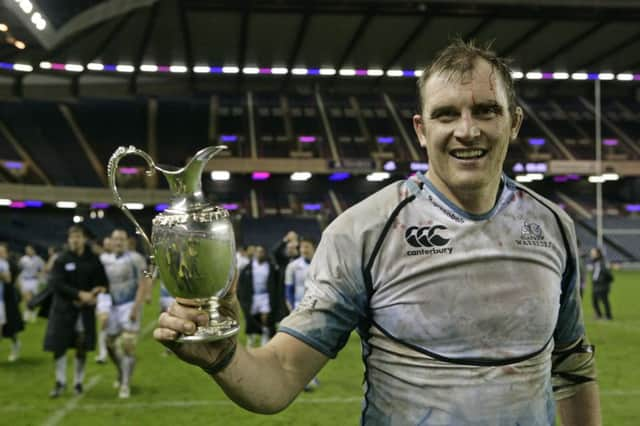Allan Massie: Glasgow put faith in Al Kellock


Edinburgh now look unlikely to qualify for next season’s European Champions Cup. That will be a disappointment, even though one may think that another season in the Challenge Cup in which they did so well this year might not be an altogether bad thing. Glasgow secured their place in the top European tournament weeks ago, and are also assured of being in the Guinness Pro12 play-offs. However they have to beat Ulster, possibly even needing a four-try bonus point, to secure a home semi-final.
Much is being made of the fact that no club has yet won an away semi-final since the play-offs were instituted, but that’s the sort of record which must be broken some time. Yet, obviously Glasgow would prefer to be at Scotstoun, and the decision to bring back Al Kellock to captain the side this afternoon, a couple of weeks after most thought he had played his last match before retiring, shows just how much Gregor Townsend thinks the team needs his inspirational leadership – and indeed his old head.
Advertisement
Hide AdAdvertisement
Hide AdUlster, rather surprisingly, have left Ruan Pienaar, Tommy Bowe and Rory Best on the bench, while the selection of Ian Humphreys rather than Paddy Jackson at fly-half suggests they may be going to favour a kicking game. Actually, the Ulster selection is interesting. They are on 69 points and, with Glasgow, Munster and the Ospreys all on 70, one wonders if they have concluded that the Ospreys are likely to beat Connacht in Galway, and Munster sure to beat the Dragons in Cork, with both teams likely to win a bonus point, and so perforce, settling for an away semi-final, no matter the result in Glasgow, are resting these star players for that match. Of course those on the bench would be able to come on if the game is going Ulster’s way and word comes of upsets at half-time elsewhere. No matter: any Ulster side is tough, but this selection must marginally improve Glasgow’s chances.
The report that the SRU will be appointing someone to scour the world for Scottish-qualified players or for others who might be keen to qualify for Scotland is, to put it mildly, less than welcome. Nobody denies that imports may make a valuable contribution, but for two reasons the timing seems strange. First, Sean Lineen has met with more success than his predecessors at under-20 international level. There are now a lot of very promising home-grown Scots coming through, and their progress is likely to be retarded if they find advancement blocked by imports. It is expected that Josh Strauss and W P Nel, having qualified by residence, will be in the Scotland World Cup squad, even though one may doubt whether either is significantly better than the Scots they might displace. Otherwise not many ancestrally-qualified imports have made a great contribution in recent years – as distinct anyway from others who have come here of their own accord.
Secondly, the word is that the International Board is at last preparing to revise the laws respecting qualification. There’s a strong body of opinion which believes that the three-year residency requirement is ridiculously short, and that it should be increased to five years, and possibly longer for players brought in when very young. Importing teenagers from the South Seas countries who then qualify to play for their new country of residence after three years, when they are still perhaps immature, unfairly weakens Fiji, Samoa and Tonga, and is a practice that should be put a stop to.
In the past, New Zealand and Australia have been quite happy – more than happy indeed – with the three-year residency rule, but now that they are in danger of losing youngsters to rich clubs in France and England, it seems that they may be changing their tune.
For my part I would like to see the ancestral qualification tightened also. One grandparent – making a player a quarter Scots, English etc – seems to me insufficient. I would make two grandparents the minimum requirement. However the rule relating to ancestral qualification is much less pernicious than the residency one. After all, it’s possible that a single grandparent may have instilled a love for the Old Country in a boy, and had him cheering for Scotland even though he lives on the other side of the world. But nobody can persuade me that the so-called project player, recruited with the promise of international rugby three years down the line, is anything but a mercenary. Strauss and Nel have both made a fine contribution to their Scottish clubs, but they surely wouldn’t be here if they had not given up the hope of playing for their native South Africa.
So, whatever salary the SRU is proposing to pay its Recruiting Officer, I can’t but think the money would be better spent domestically.